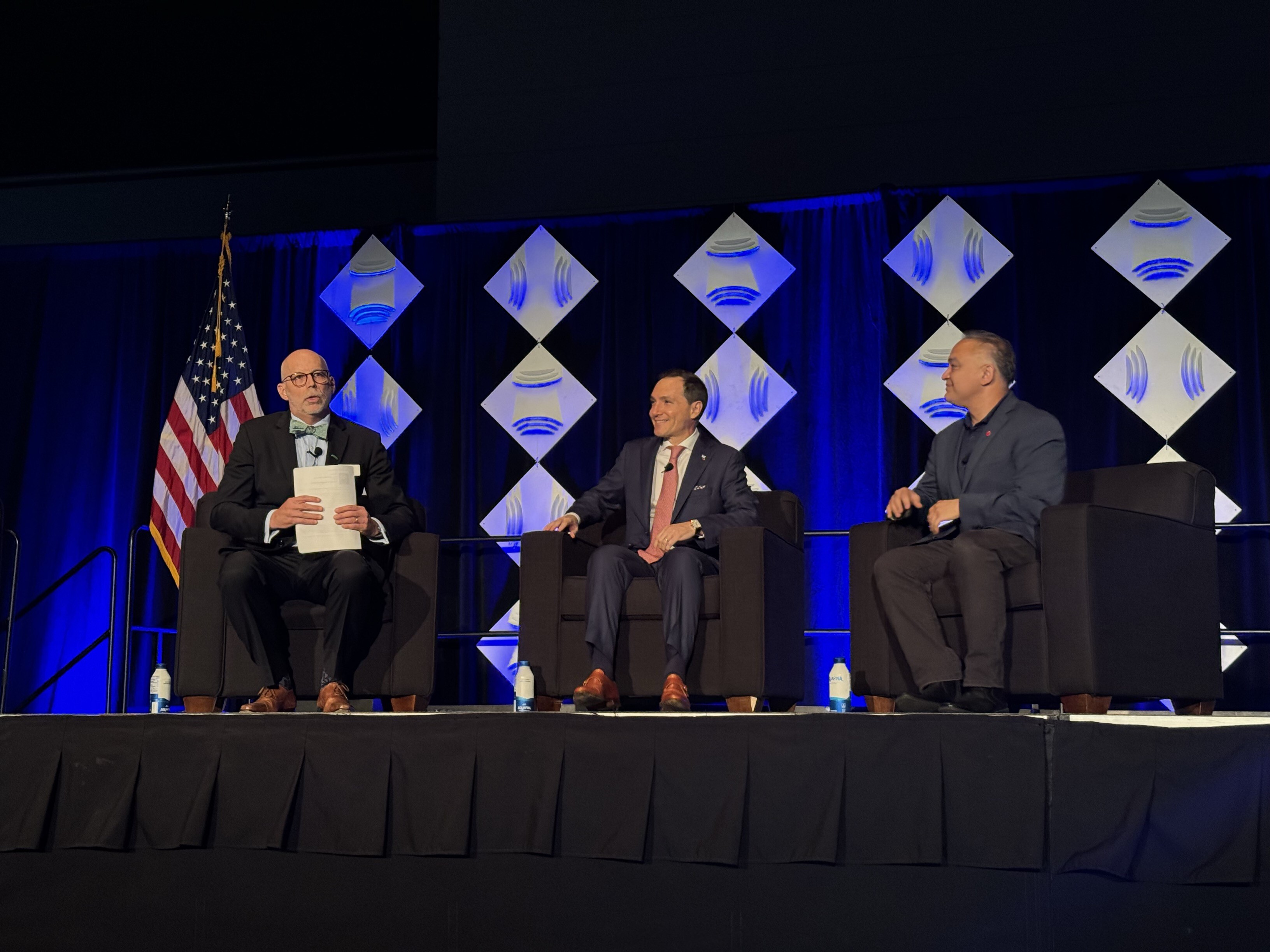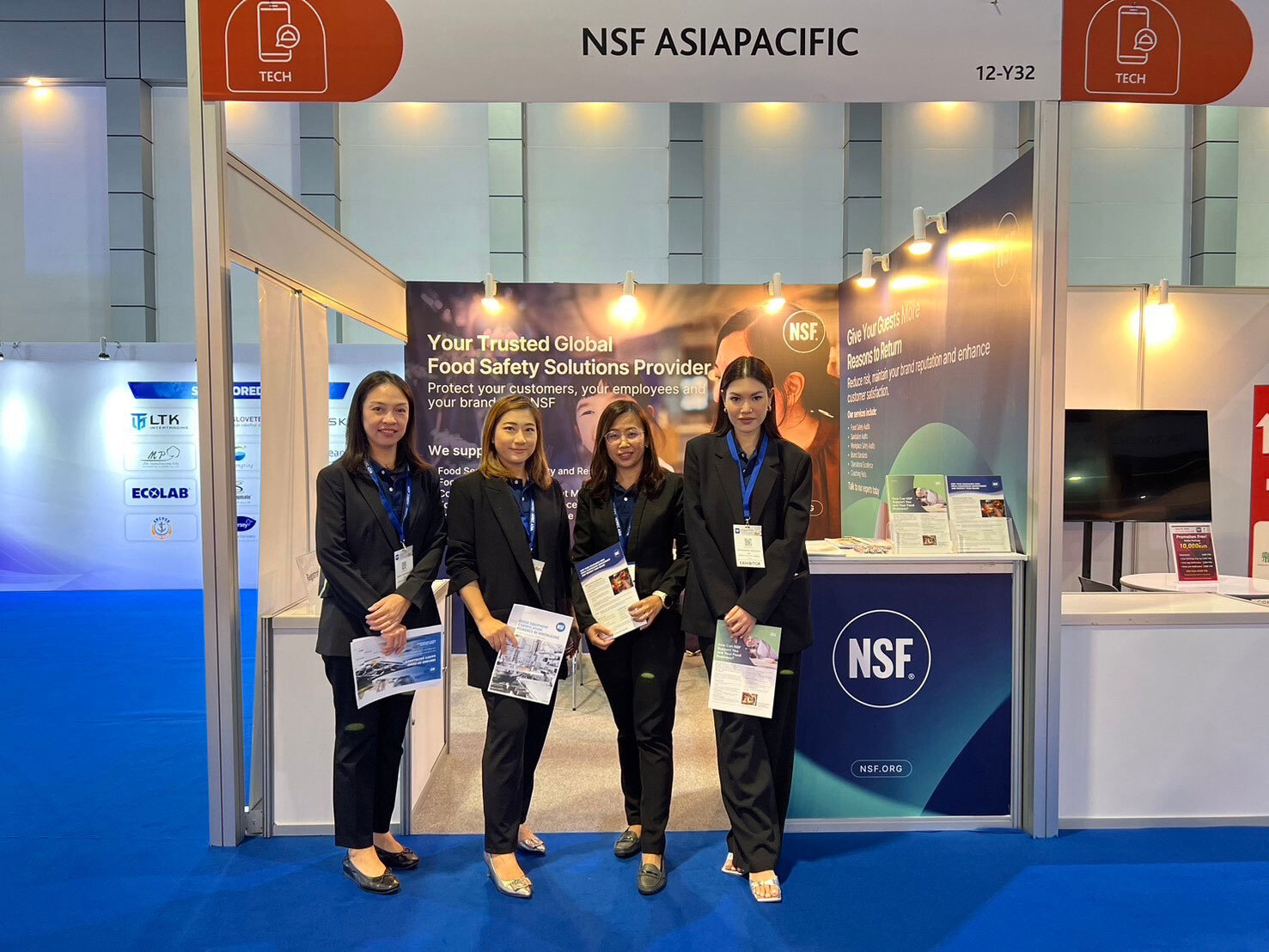NSF Hosts First Healthcare Infection Transmission Systems (HITS) Conference
ANN ARBOR, Mich. – NSF hosted the 2017 Healthcare Infection Transmission Systems (HITS) conference on September 13-14 to focus on reducing healthcare-associated infections (HAIs) using a multidisciplinary approach. The conference was the inaugural event for the HITS Consortium, and brought together over 100 attendees, including notable leaders from academia, healthcare and industry. The HITS Consortium is a non-profit organization developed to help prevent the spread of infections acquired in healthcare facilities. It uses a systems approach that focuses on the transmission of contamination from hands, surfaces, water and air, and the importance of various healthcare facility departments working together to reduce HAIs, including infection prevention and control, environmental services, facilities management and engineering.
The theme for the HITS 2017 conference was Catalyst for Change, bringing together world leaders in the field of infection prevention to present new ideas, products and implementation strategies to improve patient safety and reduce HAIs. Each conference day concluded with interactive breakout sessions that enabled engaging cross-disciplinary discussions and created multiple task groups to address key patient safety issues in the coming months.
“The HITS Consortium focuses on using a holistic approach that involves not only the various mechanisms of infection transmission in healthcare, but also all related departments, employees and policies,” said Christine Greene, MPH, Ph.D., Principal Research Investigator with NSF’s Applied Research Center. “I couldn't be more pleased with our conference this year. We had world leaders from a number of different fields in the same room collaborating and driving forward conversations as catalysts for change in healthcare infection prevention.”
Highlights of the conference included:
Myles Leslie, Healthcare Sociologist, Institutional Ethnographer and Assistant Professor at the University of Calgary
Keynote speaker Myles Leslie, Ph.D., a Healthcare Sociologist, Institutional Ethnographer and Assistant Professor at Cumming School of Medicine at the University of Calgary, discussed his recent research into understanding and optimizing culture and communications to influence quality improvement and safety. Dr. Leslie introduced ethnography as a tool for successfully designing and implementing quality improvement in healthcare. Ethnography is a research method that can be used to evaluate everyday work of healthcare providers and uncover breaches in best infection prevention practices.
Dr. Leslie also presented the video reflexive ethnography (VRE) method, a less labor-intensive ethnographic method to help healthcare providers understand their behavior patterns and how these patterns can negatively impact patient care. The VRE method consists of:
- Videotaping healthcare workers as they conduct their regular patient care task as a group
- Showing the video and allowing the healthcare providers to see for themselves the patient care they perform as a group
- Reviewing the video with the ethnographer leading the group and helping them develop solutions for their actions
Featured speaker Dr. Sanjay Saint, M.D., MPH, Chief of Medicine at the VA Ann Arbor Healthcare System and the George Dock Professor of Internal Medicine at the University of Michigan, also discussed his research into patient safety, implementation science and medical decision-making.
Dr. Saint views intersectional innovations as a game changer to prevent HAIs. Although he agreed that hand hygiene is the best way to keep infections away from patients, he questioned how hand hygiene compliance can be improved given human behavior.
In his presentation Dr. Saint discussed cultural implications from across the world in assessing effective hospital hand hygiene practices. He also discussed the idea of incorporating mindfulness into the hand hygiene process. Dr. Saint’s early data suggests that focusing on the one task of hand hygiene before and after touching a patient can take doctors and nurses back to the sacred act of healing. Early data shows that incorporating mindfulness into hospital hand hygiene procedures has decreased HAIs in patients. While more evidence is needed, Dr. Saint stated that medical staff reported that applying mindfulness practice into hand hygiene reminded them of why they entered the medical field in the first place.
Other topics address during the two-day conference included:
- How intersectional innovations can be used to prevent hospital infections
- Hand hygiene compliance and monitoring
- Biofilms and dry surfaces
- Surface decontamination
- Aligning EVS departments with infection prevention and control
- Waterborne infections in the healthcare environment
- HVAC and infection prevention
- Healthcare construction and infection prevention
- Policy and regulations
If you would like more information or would like to become involved with the HITS Consortium, please email HITS@nsf.org. Post-conference activities will be shared via twitter (@HITSConsortium), LinkedIn and on the HITS Consortium website: hitsconsortium.org
Editor’s Note: To schedule an interview with Christine Greene, MPH, Ph.D., Co-Founder of the HITS Consortium, please contact media@nsf.org or call +1 734 214 6242.
About NSF: NSF (nsf.org) is a global independent organization that writes standards, and tests and certifies products for the water, food, health sciences and consumer goods industries to minimize adverse health effects and protect the environment (nsf.org). Founded in 1944, NSF is committed to protecting human health and safety worldwide. With clients in more than 170 countries, NSF is a Pan American Health Organization/World Health Organization (WHO) Collaborating Center on Food Safety, Water Quality and Indoor Environment.
NSF’s Applied Research Center provides custom research and development services for all major industries including contract method development; testing and consulting services in chemistry, microbiology, genomics and toxicology; product claim verification; lab quality/management; methods training; and human health risk assessment.
The Healthcare Infections Transmission System (HITS) Consortium seeks to protect public health by reducing healthcare-associated infections through the integration of best infection prevention practices. The HITS Consortium focuses on the major pathogen transmission systems in the healthcare setting, specifically surfaces, person to person, water and air. The Consortium involves researchers and experts from across disciplines who work toward identifying research gaps and applying data-driven methods in healthcare. It is comprised of members from healthcare fields and organizations including NSF, InfectionControl.tips, the University of Arizona Mel & Enid Zuckerman College of Public Health, Sodexo and The Ohio State University.
Share this Article
How NSF Can Help You
Get in touch to find out how we can help you and your business thrive.

What’s New with NSF

NSF Shanghai Named Critical Site for NSF/ANSI 455 and NSF/ANSI 173 by ANSI National Accreditation Board
July 26, 2024
NSF Takes Center Stage at NEHA Annual Education Conference
July 25, 2024
NSF Asia Pacific Showcases Hospitality Solutions at THAIFEX HOREC Asia 2024 in Bangkok, Thailand
July 4, 2024